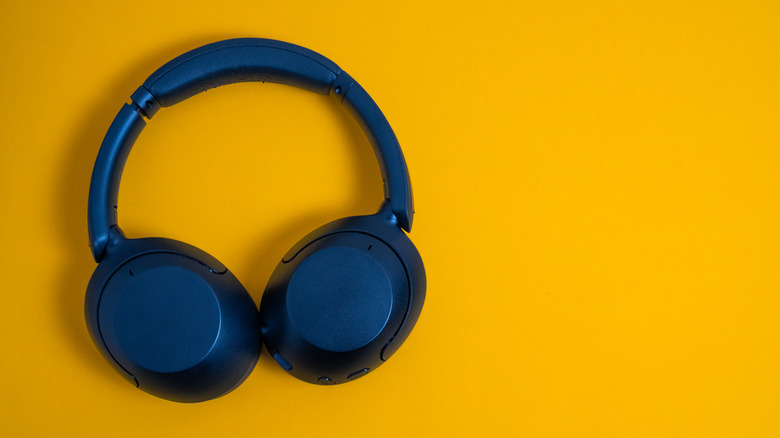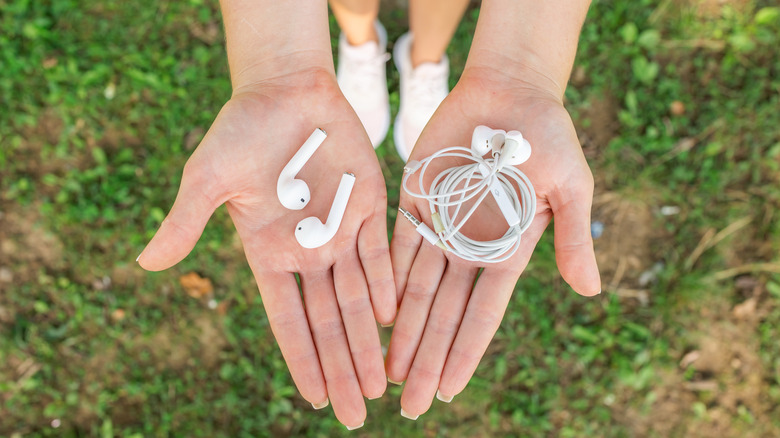Are Wireless Headphones Better Than Wired Options?
If you're in the market for a pair of headphones, you may be wondering whether the ubiquitous true-wireless earbuds are the best option. But what about the old school wired headphones people wore back in the day? Are those better? The short answer is: Yes, but it depends on what you mean by "better." While headphone specs can be quantified with real numbers, a lot of the experience comes down to how you subjectively feel about the sound of your music.
A pair of wired headphones or earbuds transmit audio through a wire, typically plugged into a 3.5-millimeter or quarter-inch jack. This means that the audio signal is transmitted nearly instantly, in its entirety. Wireless headphones, on the other hand, typically rely on transmitting a signal using some sort of radio frequency (RF) protocol, such as Bluetooth or Wi-Fi, which can lead to some artifacts or the potential for connection drops in certain circumstances.
Transmitting music wirelessly is complicated
Wired headphones connect using a wire, wireless headphones connect without one: This one simple difference is the key to understanding the contrast in sound quality. The vast majority of wireless headphones you see from top manufacturers like Apple, Bose, and Sony use Bluetooth connectivity to transmit the audio. Bluetooth is a trademarked protocol that uses processing chips (typically embedded into the headphones themselves) to compress, then transmit the audio from your device to your headphones.
This process means that only an approximation (albeit a very close approximation) of your source audio reaches your headphones. Adding further complication, there are "sub-protocols" used in Bluetooth audio transmission called codecs, which are often proprietary formats that aim to provide a more detailed or faster compression and transmission of the audio. Some examples include FLAC, Qualcomm's aptX, and the more standard AAC and SBC audio codecs.
Even the fastest, highest quality codecs above still require your audio files to be processed and compressed, losing some of the data from the source. Wired headphones, on the other hand, don't need to do any of this. You just plug them into your sound source (if it's still got a headphone jack or an adapter, that is), and play your music instantly with no software compression or processing. This means that, on paper, the wire in a wired headphone will always do a better job at transmitting audio than the wire-free transmission in wireless headphones.
When can wireless headphones be a better choice?
So why do we see so many people using wireless headphones? Setting aside the obvious convenience factor of not dealing with tangled wires, most average listeners may not even notice the sound quality difference anymore. If you're already listening to music via streaming services such as Spotify or Apple Music, then you are already listening to processed, compressed, and lossy streams. Additionally, streaming services all have different ways of transmitting and compressing audio; and many times, you have to pay more for higher quality. Though it is important to note that Spotify recently added lossless streaming to its Premium tier.
As a result of all this, your wired headphones may not even be receiving a truly high-fidelity audio feed to begin with, unless you're listening to files locally that are CD-quality or higher. What's more is that many premium wireless headphones feature on-board processing and equalization that aims to polish the loss-ier files that have been transmitted to the headphones. This all means that the average listener may not notice a whole lot of difference in their audio, especially if they use headphones for commuting or while at the gym.
The verdict remains that wired headphones are objectively better, at least from a transmission standpoint. However, choosing the right pair for you depends on your specific use-case. If you see yourself as an audiophile with a massive library of lossless audio, then a high-quality pair of wired headphones would fit the bill. If you're an average Spotify listener who uses headphones on your afternoon jog, then a wireless pair will still deliver convenience and good audio quality.


